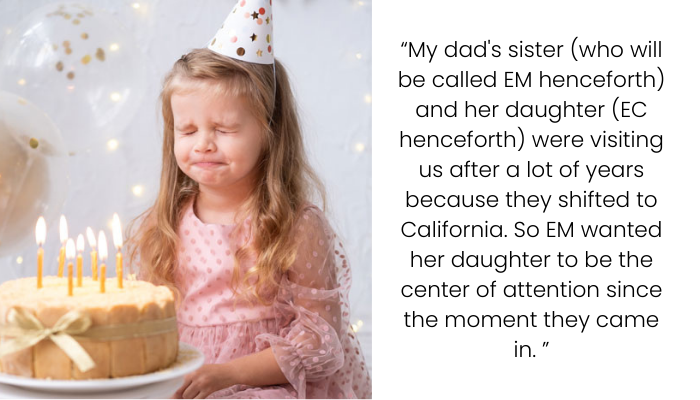Entitled Aunt Hijacks Niece’s Birthday, Sparks Family Drama
In a family gathering meant to celebrate an 11-year-old girl’s birthday, tensions rose when an aunt (EM) and her daughter (EC), visiting from California, disrupted the festivities. EM insisted that her 7-year-old daughter cut the birthday cake, claiming she deserved it more due to her age. Despite the mother’s refusal, EM continued to assert her daughter’s dominance throughout the event. EC demanded gifts and chocolates meant for the birthday girl, leading to emotional distress. The situation escalated when EM damaged a dollhouse gift and later accused the family of poisoning her child, only for a doctor to diagnose the issue as overeating.
This incident underscores the challenges of dealing with entitled family members during special occasions. Such behavior not only disrupts the event but also leaves lasting emotional scars on those involved.
There’s always that one relative who shows up to every family event and acts like they’re the guest of honor

The author’s aunt and her daughter visited for their sister’s eleventh birthday after years of being away
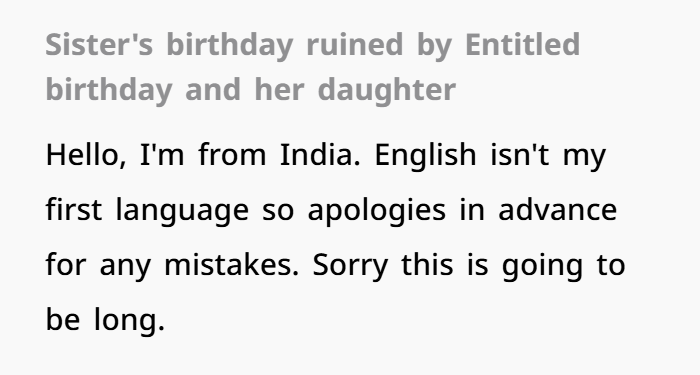
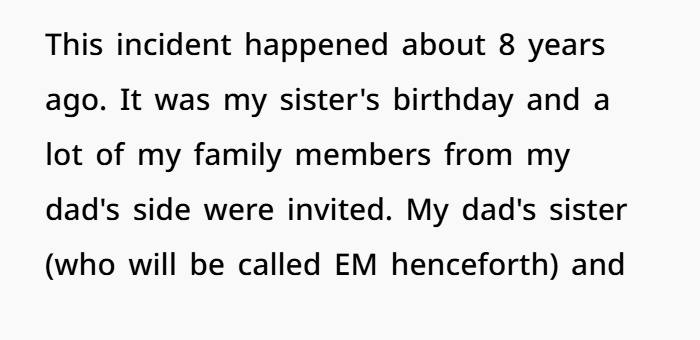
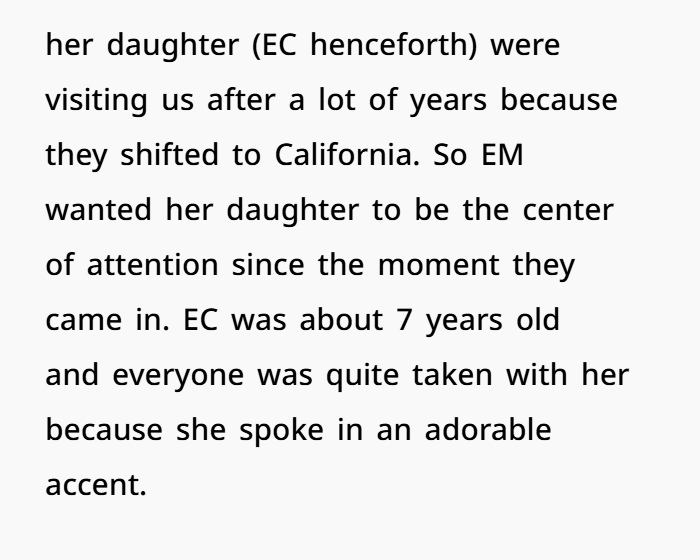
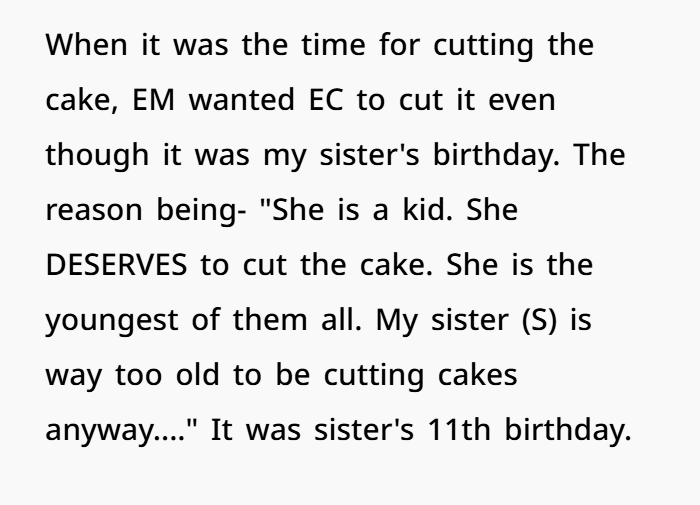

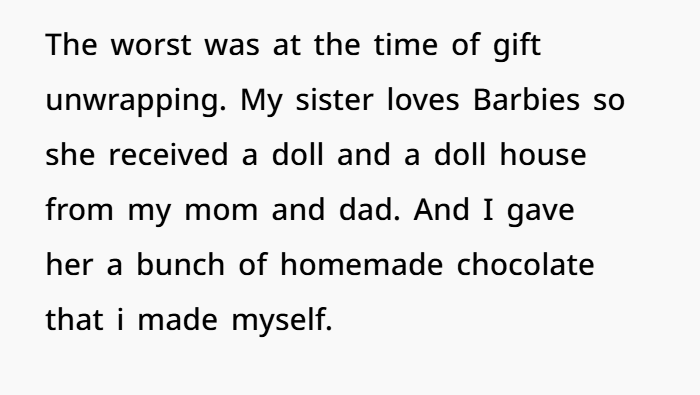
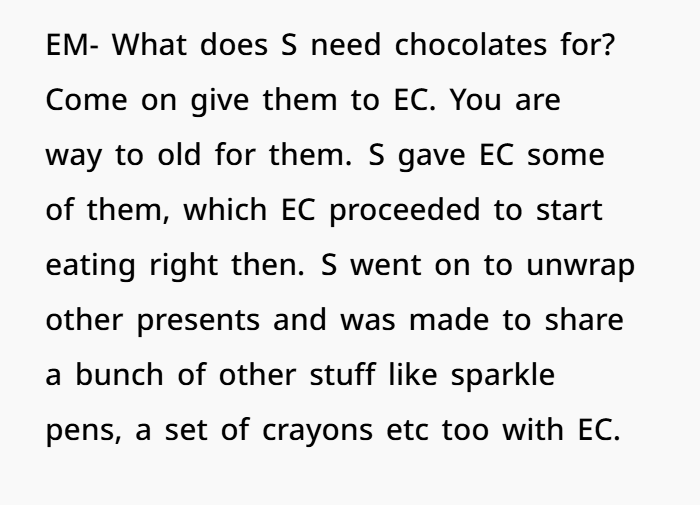

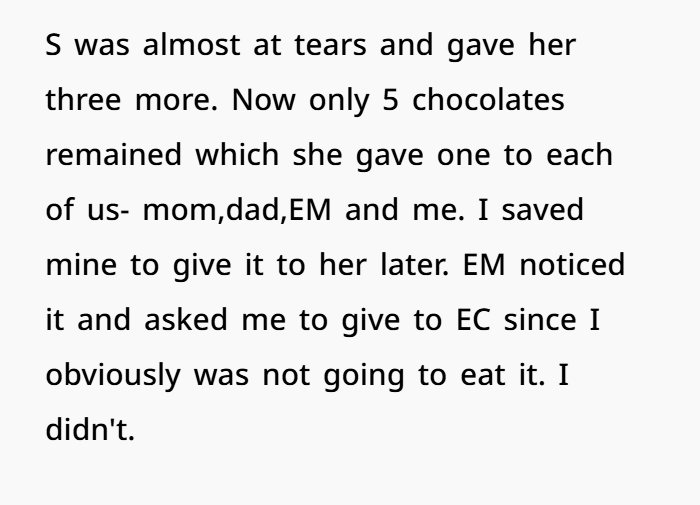
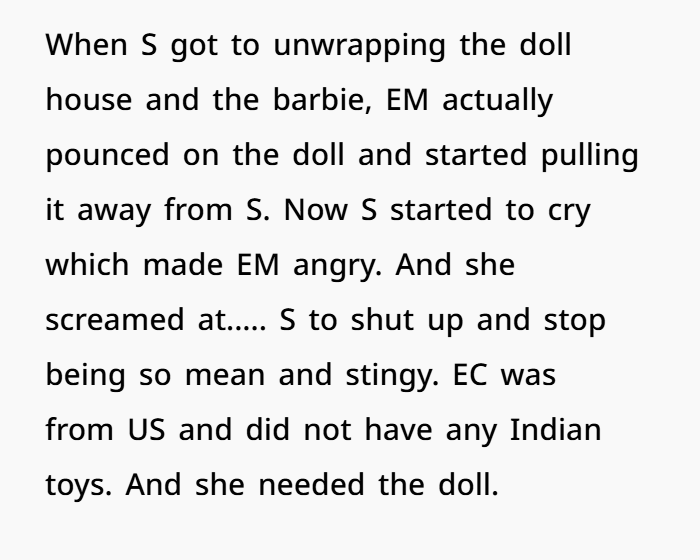
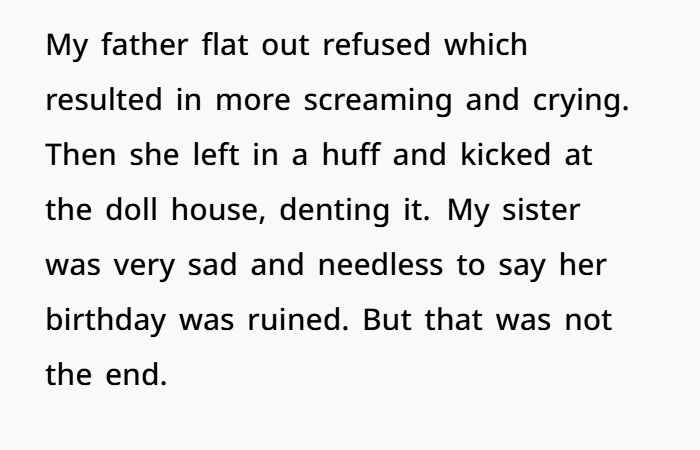


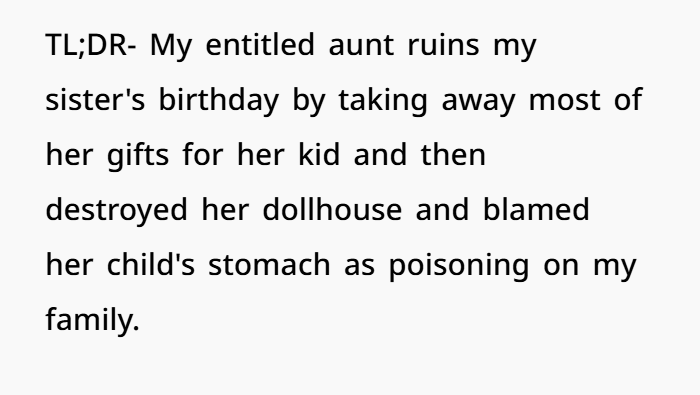
The Emotional and Cultural Dynamics of Entitled Behavior in Family Gatherings
The narrative of your sister’s birthday being overshadowed by an entitled aunt (EM) and her daughter (EC) is a poignant example of how familial relationships can be strained by inappropriate behaviors and expectations. This incident not only disrupted a celebratory occasion but also highlighted deeper issues related to entitlement, boundary-setting, and cultural dynamics within family structures.
Understanding Entitlement in Family Contexts
Entitlement, in psychological terms, refers to an individual’s belief that they deserve special treatment or privileges without corresponding responsibilities or consideration for others. In family settings, this can manifest as certain members expecting preferential treatment, often at the expense of others’ comfort or rights. EM’s insistence that her daughter be the center of attention, receive gifts meant for your sister, and be catered to during the event exemplifies such entitled behavior.

Research indicates that individuals with a heightened sense of entitlement often lack empathy and have difficulty recognizing the needs and boundaries of others. This can lead to conflicts, especially in communal settings like family gatherings where mutual respect and consideration are paramount.
The Importance of Setting Boundaries
Establishing and maintaining personal boundaries is crucial in managing relationships with entitled individuals. Boundaries serve as guidelines for acceptable behavior and help protect one’s emotional well-being. In the context of your story, your family’s initial attempts to accommodate EM and EC’s demands may have inadvertently reinforced their entitled behavior. It’s essential to assertively communicate limits and expectations to prevent such overreach.
Experts suggest that when dealing with difficult family members, it’s important to:
- Communicate Clearly: Express your feelings and boundaries directly and respectfully.
- Stay Consistent: Maintain your boundaries even if met with resistance or manipulation.
- Seek Support: Engage other family members in upholding shared boundaries to present a united front.
- Prioritize Self-Care: Recognize when to disengage from toxic interactions to preserve your mental health.
Cultural Considerations and Family Dynamics
In many cultures, including Indian society, family bonds are deeply valued, and there’s a strong emphasis on hospitality and respect for elders. However, these cultural norms can sometimes be exploited by individuals exhibiting entitled behavior, leading to situations where the rights and feelings of others, especially younger family members, are overlooked.
Balancing cultural expectations with the need to protect individual well-being requires nuanced communication and, at times, challenging traditional hierarchies. It’s important to foster an environment where all family members feel heard and respected, regardless of age or status.

Moving Forward: Healing and Prevention
The emotional impact of such incidents can be long-lasting, particularly for children who may feel marginalized or invalidated. To support your sister and prevent future occurrences:
- Validate Her Feelings: Acknowledge the hurt caused and reassure her of her importance within the family.
- Create Positive Experiences: Plan future celebrations that prioritize her preferences and comfort.
- Establish Clear Guidelines: Before family events, communicate expectations regarding behavior and boundaries to all attendees.
- Address Issues Proactively: If certain family members have a history of disruptive behavior, consider discussing concerns with them privately ahead of gatherings.
Netizens sympathized with the author, acknowledging how difficult it can be to grow up with toxic family members


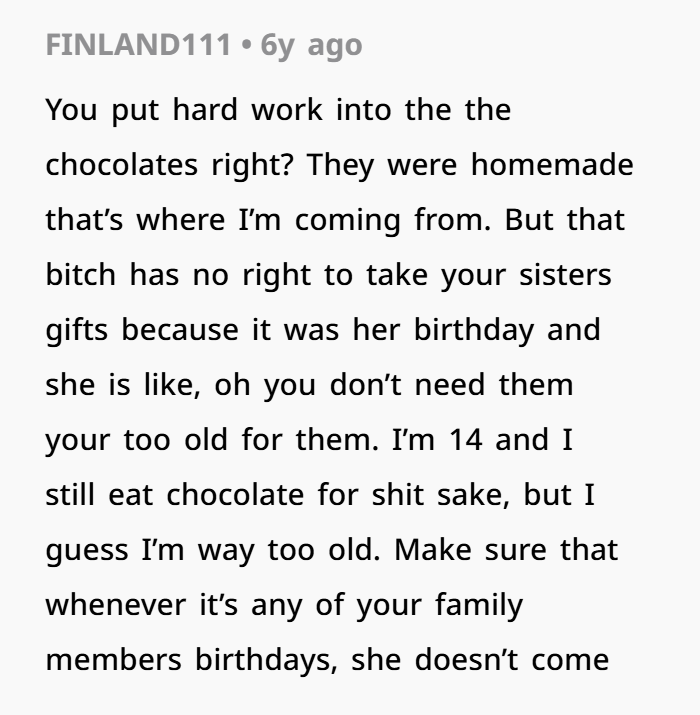




Your experience underscores the challenges of navigating family dynamics complicated by entitlement and cultural expectations. By setting clear boundaries, fostering open communication, and prioritizing the emotional well-being of all family members, it’s possible to create more harmonious and respectful family interactions.
If you need further guidance on managing such situations or support in establishing healthy family boundaries, consider consulting with a family therapist or counselor who can provide personalized strategies and support.

